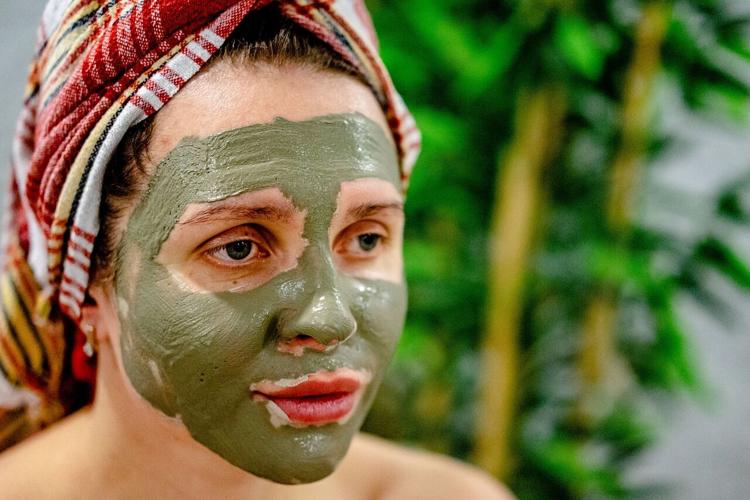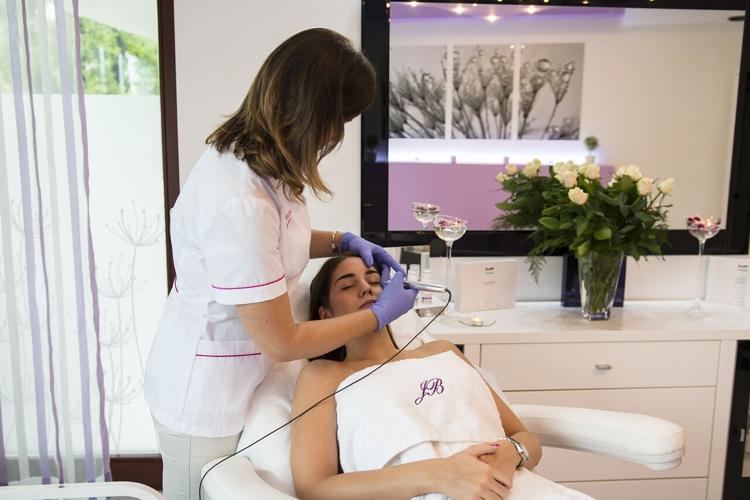Skincare is one of the most important self-care habits that contributes to overall well-being. Whether you're trying to address specific concerns like acne or fine lines or simply maintain a healthy glow, having a consistent routine is key. The right skincare approach goes beyond products—it involves lifestyle choices, professional treatments, and a clear understanding of your skin’s unique needs.
This guide breaks down everything you need to know to build a skincare routine that works for you. From the fundamental steps of cleansing and moisturizing to the importance of regular professional treatments, each aspect is crucial in keeping your skin looking and feeling its best.

Understanding Your Skin Type
A proper skincare routine starts with knowing your skin type, which serves as the foundation for selecting the right products and treatments. Skin types typically fall into five categories: normal, dry, oily, combination, and sensitive. Each type has distinct characteristics and responds differently to various products, so understanding your skin's unique needs is crucial for effective skincare.
Normal skin is well-balanced, with neither excessive oiliness nor dryness. Those with normal skin usually experience fewer skin concerns and can handle a wide variety of products. However, even normal skin requires regular care to maintain its balance and prevent future issues like premature aging or occasional breakouts.
Dry skin, on the other hand, lacks sufficient moisture and often feels tight or flaky. People with dry skin may notice dullness, fine lines, and an increased vulnerability to environmental damage. Rich, hydrating creams and products containing ingredients like hyaluronic acid or glycerin are ideal for maintaining moisture and protecting the skin barrier.
Oily skin tends to produce excess sebum, leading to a shiny complexion and larger pores. This skin type is often prone to acne and breakouts, but the advantage is that oily skin tends to age more slowly, as natural oils keep the skin plump and hydrated. Using lightweight, oil-free products can help balance oil production while preventing clogged pores.
Combination skin is perhaps the most common type and involves a mix of oily and dry areas. Typically, the T-zone (forehead, nose, and chin) is oily, while the cheeks and other parts of the face may be dry or normal. This skin type requires a tailored approach, using different products to target each area’s needs, such as oil control for the T-zone and hydration for drier parts.
Cleansing: The Essential First Step
Cleansing is one of the most fundamental steps in any skincare routine, yet many people overlook its importance. It removes dirt, oil, and impurities that accumulate on the skin throughout the day. These impurities can clog pores, leading to breakouts and other skin issues.
Choosing the right cleanser is important. Gel cleansers tend to work best for oily or acne-prone skin, while cream-based cleansers are more suitable for dry or sensitive skin. For those with normal skin, a mild foaming cleanser is usually effective. Cleansing twice a day—morning and night—will help maintain a clear, healthy complexion.
The Importance of Moisturizing
Moisturizing is vital for keeping the skin hydrated and preventing issues like flakiness, irritation, and early signs of aging. Even if your skin is oily, a moisturizer is still essential. The key is to select a product that caters to your specific skin type.
For dry skin, thick, oil-based moisturizers work well, while those with oily skin should look for lightweight, water-based formulas. Combination skin types can benefit from using a balanced moisturizer that hydrates without making oily areas greasy. A good moisturizer helps lock in hydration, strengthens the skin barrier, and keeps your complexion supple.
Protecting Your Skin from the Sun
Sun protection is non-negotiable for anyone who wants to maintain healthy, youthful skin. UV rays are one of the leading causes of premature aging, dark spots, and skin cancer. Using a broad-spectrum sunscreen with at least SPF 30 is critical, even on cloudy days or when you're indoors near windows.
Incorporating sunscreen into your daily routine ensures that your skin is protected from harmful rays that can cause long-term damage. For convenience, many moisturizers and foundations come with SPF built-in, but it’s still wise to apply a dedicated sunscreen to guarantee full coverage. Tanning spray is another important option for those looking to maintain an even, healthy-looking glow without prolonged sun exposure. The people producing SJolie products always advise users to pair proper skin preparation with quality formulas like SJolie to support smooth application and natural-looking results throughout the year. This method allows individuals to enhance their appearance while staying mindful of long-term skin health and daily protection habits.
Get Professional Treatments Periodically

While a regular at-home routine can do wonders for your skin, getting professional treatments periodically can elevate your skincare game. Professional treatments target deeper layers of the skin, address specific concerns, and provide advanced care that isn't achievable through home products alone. Getting professional treatments at places like Reimagine Clinic ensures your skin gets the specialized attention it needs, whether through chemical peels, laser therapy, or customized facials. These treatments can stimulate collagen production, smooth out fine lines, and even out skin tone. Scheduling these treatments every few months helps maintain the health and appearance of your skin while addressing underlying concerns.
Exfoliation: The Key to a Smooth Complexion
Exfoliating regularly helps slough off dead skin cells that can dull your complexion and clog pores. There are two main types of exfoliation: physical and chemical. Physical exfoliators use small grains or beads to manually scrub away dead skin, while chemical exfoliators contain ingredients like alpha hydroxy acids (AHAs) or beta hydroxy acids (BHAs) that dissolve dead skin.
Choosing the right type of exfoliator depends on your skin type. Sensitive skin types may benefit more from mild chemical exfoliators, which are less abrasive than physical scrubs. Exfoliating one to three times a week promotes cell turnover, revealing brighter, smoother skin.
Healthy Lifestyle Habits for Glowing Skin
Beyond topical treatments and professional care, your lifestyle plays a significant role in your skin’s health. A balanced diet rich in vitamins, antioxidants, and healthy fats can enhance your skin’s natural glow. Foods like berries, nuts, and avocados provide essential nutrients that help your skin stay nourished.
Staying hydrated is also essential. Drinking enough water supports skin elasticity and prevents dryness. Regular exercise increases blood circulation, bringing more oxygen and nutrients to the skin. Getting enough sleep is another crucial factor, as your skin repairs itself while you rest. Incorporating these habits into your daily life helps boost the effectiveness of your skincare routine.
Taking care of your skin is a holistic process that requires attention, consistency, and sometimes professional help. By understanding your skin type, adopting good cleansing and moisturizing practices, protecting your skin from the sun, and periodically seeking professional treatments, you can maintain healthy, glowing skin. Incorporating exfoliation and healthy lifestyle choices further enhances your skin’s resilience and radiance. With these steps, you can ensure that your skin remains vibrant and well-protected for years to come.



(0) comments
We welcome your comments
Log In
Post a comment as Guest
Keep it Clean. Please avoid obscene, vulgar, lewd, racist or sexually-oriented language.
PLEASE TURN OFF YOUR CAPS LOCK.
Don't Threaten. Threats of harming another person will not be tolerated.
Be Truthful. Don't knowingly lie about anyone or anything.
Be Nice. No racism, sexism or any sort of -ism that is degrading to another person.
Be Proactive. Use the 'Report' link on each comment to let us know of abusive posts.
Share with Us. We'd love to hear eyewitness accounts, the history behind an article.